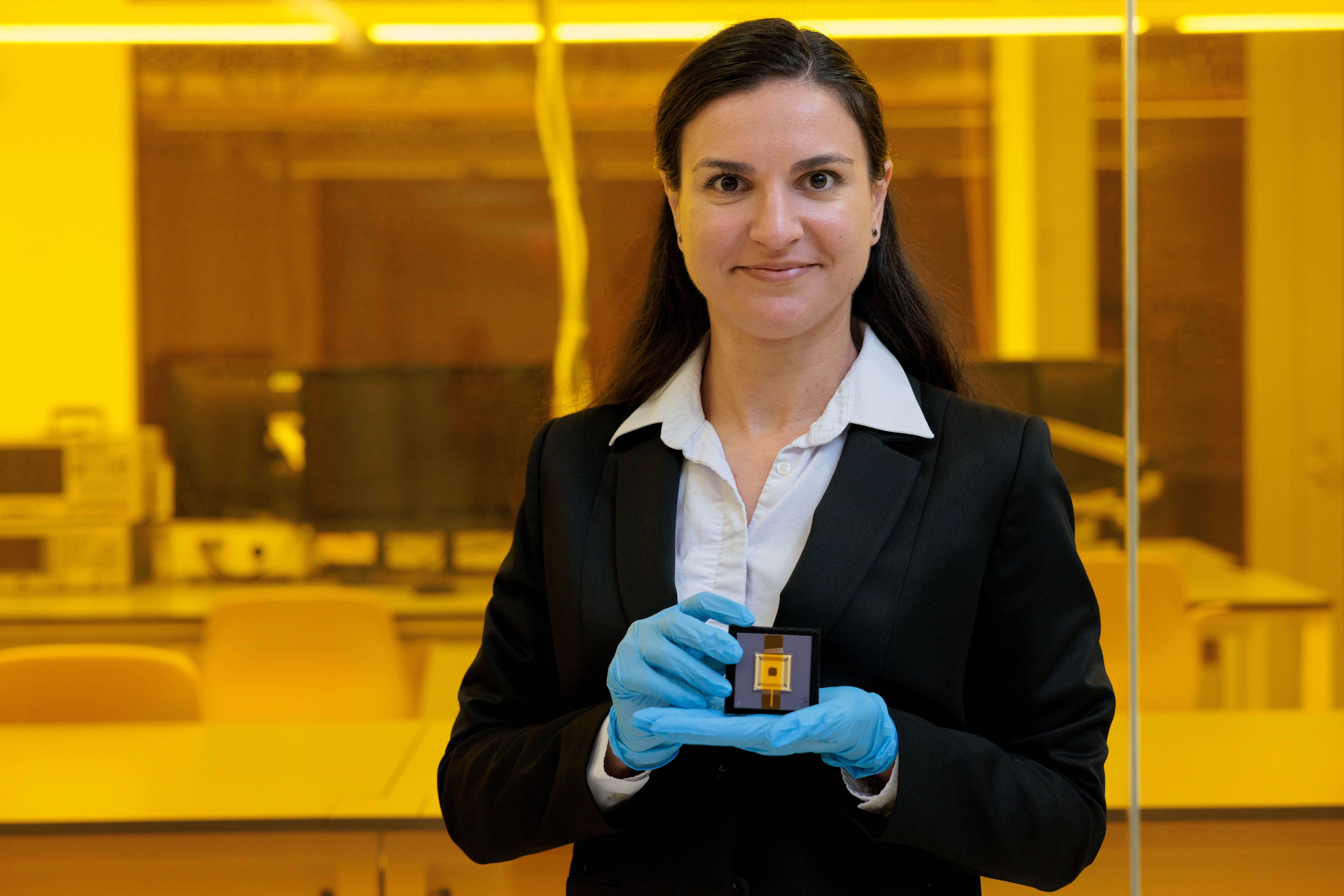Training artificial intelligence (AI) is anticipated to consume exponential amounts of computing resources in the next decade at significant environmental and financial costs. Dr. Gina Adam, Assistant Professor in the Electrical and Computer Engineering Department, has received a prestigious National Science Foundation (NSF) Faculty Early Career Development Program (CAREER) award to work on developing memristive technology to solve this problem in the study, Entropy Oxide Memristors for Software-equivalent Neuromorphic Computing.
The CAREER award is a five-year grant meant to support early-career faculty to build a firm foundation for a lifetime of leadership in integrating education and research. The chosen faculty already serve as academic role models in research and education at their institutions, which is undoubtedly true for Adam, as this is now the second award dedicated to early career faculty she has received for her work on advancing hardware for AI. The first was the 2023 Young Investigator Program Award from the Air Force Office of Scientific Research for her research project investigating realistic dynamic neural networks inspired by hippocampal architecture and its specific neurogenesis capabilities.
In the CAREER project, Adam and her team will work on new materials and device designs for more reliable synaptic devices to support neuromorphic hardware in the future. Memristors behave like artificial synapses by “remembering” the amount of electric charge that has passed through them, meaning that memristors can learn and switch between numerous states. The project will investigate entropy-stabilized oxide memristors because such materials provide a broad compositional space where desired switching dynamics could be identified and also have the potential for CMOS integration. The goal is to create ultra-low variability analog memristors by exploiting the underlying material properties and physical phenomena in entropy-stabilized oxides for software-equivalent neuromorphic computing.
Ultimately, this project will make critical advances in understanding the underlying material and physical requirements for ultra-low variability memristors and investigate their potential performance for next-generation AI hardware. Adams says this project is very timely as it is in line with the need for advanced innovations to maintain the US competitiveness in microelectronics and the vision of the CHIPS Act to train a diverse workforce.
Through the seamless integration of experiential learning activities, this project will support necessary workforce development in the field, as envisioned in CHIPS. Adam’s efforts include overhauling a nanoelectronics course to make it more accessible, interdisciplinary research training for diverse students, developing a comprehensive virtual reality memristor simulator, providing GitHub documentation to the community, and outreach to local high schools.
“I am very honored to have received this prestigious CAREER award. My students and I are excited to develop the next generation of memristors with engineered switching dynamics and to incorporate our research results in educational and community outreach efforts. We hope that this work will enable the discovery of new materials for memristor devices and support the development of computing technologies and contribute to the education of the next-generation scientists and engineers in the field,” said Adam.




